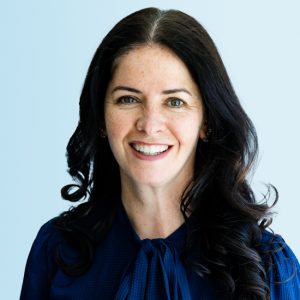Diversity, Equity, and Inclusion (DEI) efforts across businesses of all types in the United States have increased in the past decade, growing in prominence even before the murder of George Floyd in 2020 and the rise of xenophobia that accompanied the Covid-19 pandemic. Companies have set out to build more inclusive cultures and need Chief Diversity Officers (CDOs) to guide them along the way.
As the DEI landscape continues to change, corporations will rely on CDOs even more, and CDOs must be prepared for what’s on the horizon. New priorities, responsibilities, and social justice issues are forcing CDOs to evolve their skillsets in order to meet the demands of the moment. According to Katie Mooney, Managing Director of Diversity Best Practices at Seramount, CDOs will face three top challenges in 2022.
Global DEI is a Growing Imperative for CDOs
DEI is often thought of as a U.S.-centric issue, but global diversity is becoming increasingly important to multinational corporations as they continue to implement and evolve their DEI strategies. Seramount has produced the Inclusion Index, which is based on U.S. data, for the past five years, but the requests to assess global efforts, even if they are in early stages, have accelerated each year. And with good reason—of the 185 organizations that earned spots on the Inclusion Index, 93 percent have a global presence.
While multinational and global organizations have made strides here in the U.S., they often grapple with complexities faced around the world and ways to be inclusive while respecting local cultures and norms.
“We believe that global diversity will continue to be a major focus in the next few years, and companies that can understand how to support local regions while upholding corporate principles of inclusion will have a strong advantage,” says Mooney. “In order to succeed and do it right, CDOs need to approach DEI with a global mindset but with a local focus. That should include building relationships with key leaders and stakeholders who oversee and support a region, are often based there, and have established trust with their employees.”
In Seramount’s inaugural 2021 Global Inclusion Index, we learned that just as DEI is different for every under-represented group, it’s also different in each region and in each country. Some differences are universal: age, for example, or ability/disability. But race/ethnicity, sexual orientation and gender fluidity, the underrepresentation of women, socioeconomic status, religion, and immigrant status are very different, depending on cultural history. Applying the U.S. approach to DEI broadly to other countries or regions will not work.
For example, there are best practices globally on getting LGBTQ+ employees to self-identify; however, in some countries, it is not yet safe for these employees to be out. Age is a critical issue in many places. In Asia, the workforce is very young, and there aren’t enough people to fill jobs that require more experience. On the other end of the spectrum, in Europe, the workforce is much older, and many baby boomers are retiring, leaving skills and knowledge gaps.
Additionally, when CDOs are based and trained in the U.S., it can be difficult for them to understand local laws, incorporate societal and cultural norms, and address issues or concerns in countries where they have employees.
CDOs Will Play a Larger Role in ESG (Environmental, Social, and Governance) and Sustainability Efforts
Today, companies are increasingly judged by how they treat their employees, customers, and community (think stakeholder versus shareholder capitalism) and are leveraging philanthropy and ESG to create influence, engage employees, and, ultimately, drive meaningful change. Critical issues such as DEI, social justice, supplier diversity, and climate change have become more important to today’s talent pool, especially Millennials and Gen-Zers. The work we do with our partners at Seramount continues to support those who are historically underrepresented by providing solutions that impact the greater good in pursuit of a sustainable and better future.
“With the impacts of 2020 and a growing interest from investors, organizations have made commitments and are taking steps to support racial and social justice, with the CDO key to incorporating a DEI strategy that show company progress and accountability for the benefit of their employees, our communities, and our global footprint,” says Mooney.
CDOs are playing a larger role in shaping ESG plans. As violence toward underrepresented groups in our communities continues to increase, and as laws and legislation are passed affecting these groups, senior management will keep looking to the CDO for guidance on how to react to these issues, whether externally, internally, or both. They may need to understand the ins and outs of local laws and how to communicate the effects of those laws to their broader employee population.
CDOs are being tasked with knowing what steps to take to ensure that the organization is doing the right thing for its stakeholders. It is well known that Millennials and Gen-Zers want to work for companies aligned with their values. The way these issues are handled can become a company’s calling card in attracting and retaining talent (as well as keeping their customers coming back).
CDO Burnout Must Be Actively Addressed
Therapist, advocate, coach, advisor, educator, and perspective broker: these are all of the different hats being worn by CDOs today. It can be an extremely rewarding job, but it is often a lonely one. The inconvenient truth is: The CDO does not have all the answers.
When there’s an act of violence against a community of color, or a hate crime targeting a religious group, CDOs and DEI professionals are often grieving for and with these communities, processing the events that just took place. Companies must be mindful that their CDOs are humans, too, and that they carry a very heavy load on their shoulders.
In October 2021, the Director of Diversity, Inclusion, Equity, and Belonging for Headspace took to LinkedIn to express these feelings. He wrote: “I need to rethink my career in DEI. I care way too much about this work and it impacts my mental health drastically. Fighting to have your work valued, to have your voice heard, and wanting people to care about DEI as an important business imperative is so exhausting.” His statement resonated with DEI professionals. The post went viral and has garnered over fourteen thousand reactions and over 1,650 comments to date.
In a recent blog post, Seramount president Subha Barry wrote: “CDOs don’t have the capacity to drive systemic change, are bogged down with blending compliance with existing best practices, or are just plain burned out.” With more corporations looking at DEI through a global lens, we fear this cycle will continue.
CDOs need support, community, and a safe space to share and learn. Seramount’s CDO Collaborative provides just that: a forum where CDOs gather to discuss their DEI priorities and concerns, where innovative ideas and solutions are pressure-tested, and where the CDO experience is at the heart of the agenda. Through proven research methodology and a collective commitment to learning, Seramount will identify how CDOs at companies around the globe are effecting change and will help them get the buy-in needed at the leadership level to implement these findings across entire organizations.
CDOs are critical to an organization’s DEI journey. We must help CDOs face challenges head on, equipping them with the tools they need for success. When CDOs win, we all do.
To understand if your organization’s DEI priorities are a good match for the CDO Collaborative conversation, please contact Martha Baum.


